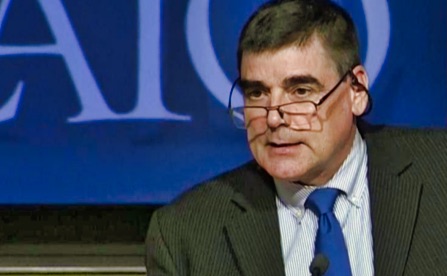Recently, La Civiltà Cattolica published a transcript of the Holy Father’s conversation with the Jesuit community working in Romania.
Pope Francis typically meets with the local Jesuits whenever he visits a country and the conversations really show the wisdom and the personality of this pope.
For example, we know the first pope from Argentina likes colorful metaphors and stories.
The nation that gave the world the tango would not give us a dull pope. When asked about where he finds consolations, he said:
I’ll tell you a story. I like to spend time with children and the elderly. Once, there was an old lady. She had precious, bright eyes. I asked her, “How old are you?”
“Eighty-seven,” she answered.
“But what do you eat to be so well? Give me the recipe,” I said.
“Everything!” she answered.
“And I make my own ravioli.”
I said to her, “Madam, pray for me!”
She says to me, “Every day I pray for you!”
And joking, I add, “Tell me the truth: Do you pray for me or against me?”
“Of course, I pray for you! Many others inside the Church pray against you!”
The story illustrates that he means it when he talks about accompanying people.
He clearly takes delight in meeting this elderly woman and he remembers her specific age.
He remembers her “precious, bright eyes.”
He engages with her like a real person: “Give me the recipe.”
But, he also makes a very clear point, adding: “True resistance is not in the people of God who really feel they are the people.”
His comments about dealing with difficult times demonstrate a different attitude towards evangelisation than, say, what we heard about last week from Bishop Robert Barron at the U.S. bishops’ conference meeting.
The pope says:
What to do? It takes patience, it takes hupomeno, that is, carrying the weight of the events and circumstances of life. You have to carry the burden of life and its tensions on your shoulders. We know that we must proceed with parrhesia and courage. They’re important. However, there are times when you can’t go too far and then you have to be patient and sweet. This is what Peter Faber did, the man of dialogue, of listening, of closeness, of the journey.
Today is a time more for Faber than for Canisius, who was the man of the dispute. In times of criticism and tension we must do as Faber did, working with the help of the angels: he begged his angel to speak to the angels of others so that they might do with them what we cannot do. And then you really need proximity, a meek proximity. We must first of all be close to the Lord with prayer, with time spent in front of the tabernacle. And then the closeness to the people of God in daily life with works of charity to heal the wounds.
The contrast of Faber and Canisius illustrates that these divergent approaches are not new in the experience of the church.
But, whereas Barron calls for a new apologetics, revels in arguing with atheists, and holds up Jordan Peterson as some kind of icon of effective communication, Francis counsels against following the model of the disputatious Canisius, states that we need a “meek proximity” to the people of God, and goes on to say:
The Church is so wounded, and today it is also so wounded by tensions within it. Meekness, it takes meekness! And it takes a lot of courage to be meek! But you have to go forward with meekness. This is not the time to convince, to have discussions. If someone has a sincere doubt, yes, one can dialogue, clarify. But don’t respond to the attacks.
It is very hard to be quiet in this age of Twitter, but can we doubt that the pope is right, that aping the culture which has marginalized the Christian faith, as Barron does, is no way to proceed, and that we must bear witness to the suffering of people more than we should try and convince them by argumentation. Continue reading
- Michael Sean Winters covers the nexus of religion and politics for NCR
- Image: Lifesite News
News category: Analysis and Comment.




